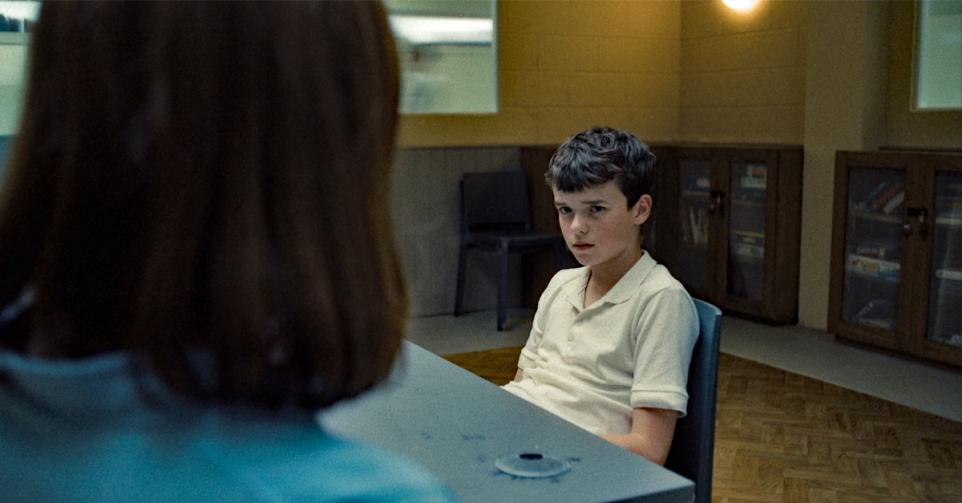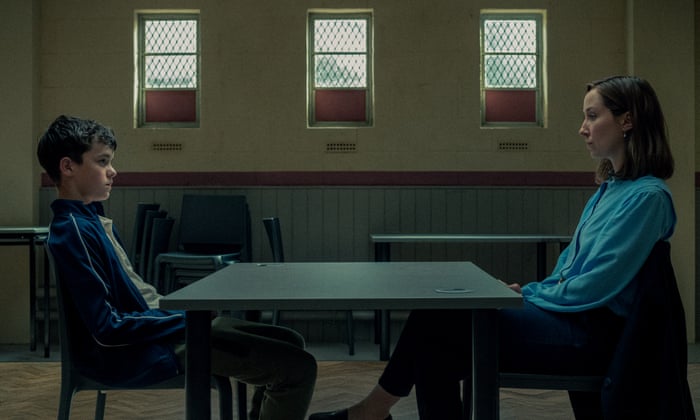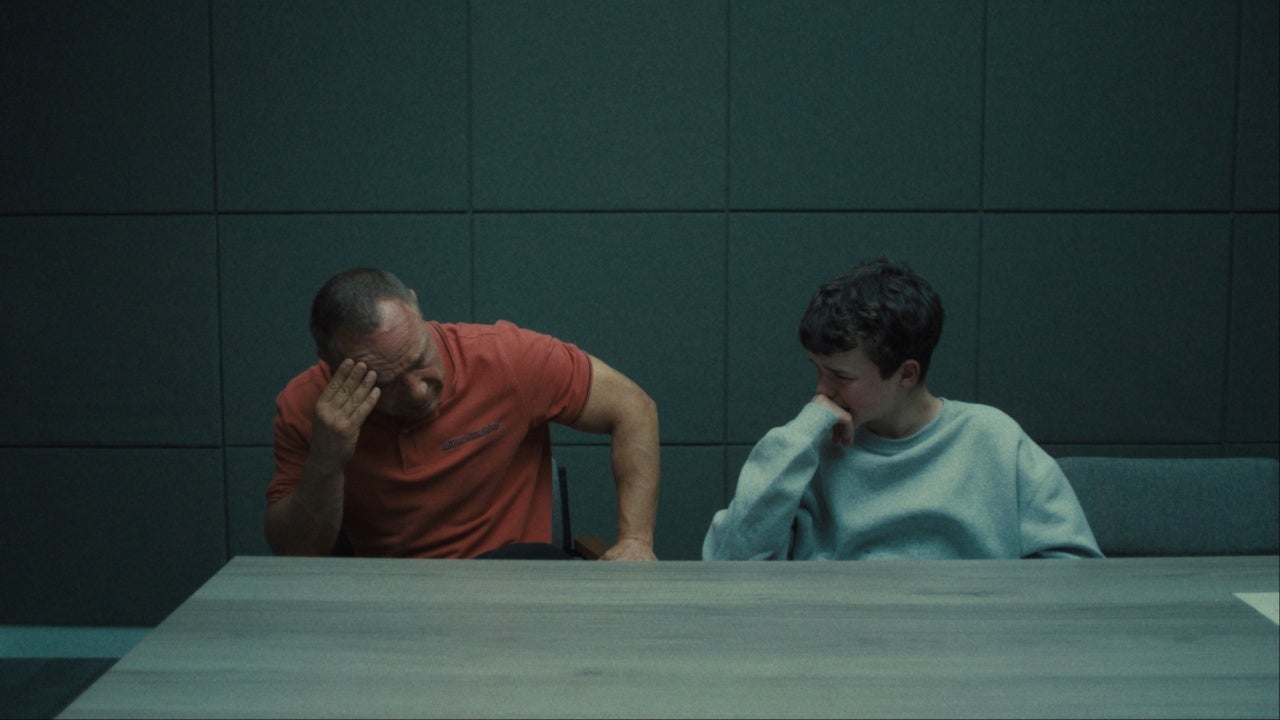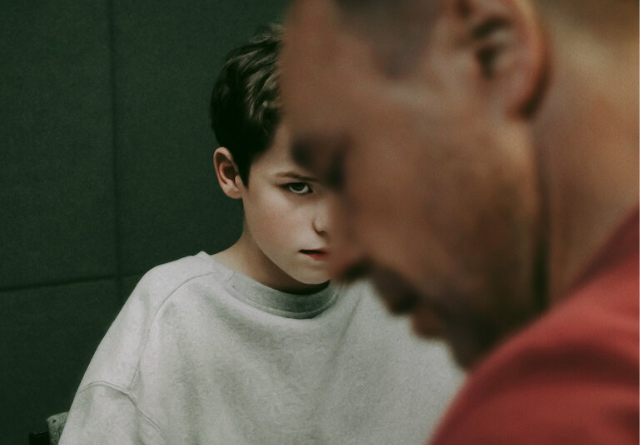Netflix’s Adolescence & Radicalization
Adolescence is a four-episode Netflix miniseries that has taken the internet by storm since its release on March 13th. Clips of behind-the-scenes discussions and Owen Cooper’s stunning debut performance are inescapable regardless of what app or website you’re on— and for good reason.

Following in the trend of thrilling British crime dramas arriving on streaming platforms (Criminal Record, The Devil’s Hour, Baby Reindeer), Adolescence follows the aftermath of a murder in a small English town. From young Jamie’s arrest to his final plea, the audience explores—alongside the characters—the why of it all: What leads to a young boy being capable of murder? Why would someone feel entitled to doing such a thing? What are the influences that have led us here?
In an interview with the BBC, co-creator and co-writer Jack Thorn is quoted saying that the goal was to “look in the eyes of male rage” and the “indoctrination” of it all. The show’s success is immense, not only in its viewer-count (which, in a little over two weeks, has ranked the show #9 of all time in Netflix’s television catalogue), but its ability to intimately answer and unpack the baggage surrounding these questions makes the story a testament to the times that we live in.
That’s not to say that there aren’t other deeply impressive qualities besides the writing— every actor’s performance is absolutely phenomenal (even long silences leave you on the edge of your seat), and the skill of each episode’s single shot almost puts previous Netflix projects like Daredevil and The Haunting of Hill House to shame in its ambition and execution of the method. The writing, though, is so full of thought and care that it’s impossible to talk about the show without it.

Now more than ever, we need to be discussing the topics of Adolescence. The UK Femicide Census finds that once every three days, a UK woman is killed in sex-based violence. Alongside this, the 2024 American presidential election showed a steep turn toward the right for young men. The murder in the show isn’t one based directly on a singular case, but rather a general trend of misogynistic ideology and violence toward women that is on the rise worldwide.
This discussion has been attempted before: The 2010 film Beautiful Boy tried to discuss how families of school shooters are affected by the violence, but got so caught up in the interpersonal drama that it forgot to discuss the politics. The third season of Broadchurch had a much more effective conversation about gendered violence and the radicalization of young men, but its release in 2017 dates it— despite being less than ten years old, the internet moves fast. The rise of short-form content (Tiktok, Youtube Shorts, Instagram and Facebook Reels) and interaction-tracking algorithms has led to an entirely different way of consumption, especially for today’s young people. Companies don’t care what keeps their users scrolling as long as they’re making money, even if that means they’re unintentionally (or often intentionally) spreading misinformation to them.
Adolescence directly brings up the influence of the “Manosphere” (an online group that promotes radically patriarchal gender roles among other far-right talking points) and its voices (specifically name-dropping Andrew Tate), then dives into how this ideology leads to the dehumanization of women and girls in the eyes of both its participants and listeners. The show does not deny that bullying occurs—much like Beautiful Boy—but it goes beyond that and leans into how these far-right influencers take advantage of their audiences who may be experiencing the feelings of isolation and rejection that stem from it.
Radicalization doesn’t happen in a vacuum, but rather an intentional pipeline that treats violence and fascism as direct answers to these young men’s problems. While Adolescence only shows us the aftermath of the murder, the audience is able to piece together what happened. They are directly shown how adult ignorance to the issues only furthers the problem, and how aimless they may feel once they’ve seen the effects of their mistakes.

I think back to my own experiences in middle and high school with young boys waving flags that discussed politics they didn’t fully understand; how they would chat about the most recent Feminists Owned by Facts and Logic compilations on YouTube while I tried to hide out in stairwells to eat my lunch. The online alt-right pipeline is nothing new— I saw its effects in the 2016 election while I was still in middle school. As many friends as I lost and as large an effect that it had on everybody’s experiences, what occurred nearly a decade ago pales in comparison to the present day.
Thinking about the marginalized people who are now at that age terrifies me. As much as Adolescence is phenomenal television, it is also a call-to-action to its audience: Be aware of these problems and understand them. If you know a young person—whether they are actively on the internet or not—check in on them and discuss these ideas with them. Have conversations, even if they may be uncomfortable or prove you more out-of-touch than you thought.
As much as being young is about exploration, that exploration loses its innocence once it has a certain capacity for harm. Adolescence paints its picture of radicalization in a way that ranges from subtle crafting to screaming in your face (quite literally, in the third episode), and ends itself with one final sentiment: We’ve done our best, but we should have done better. What now?

